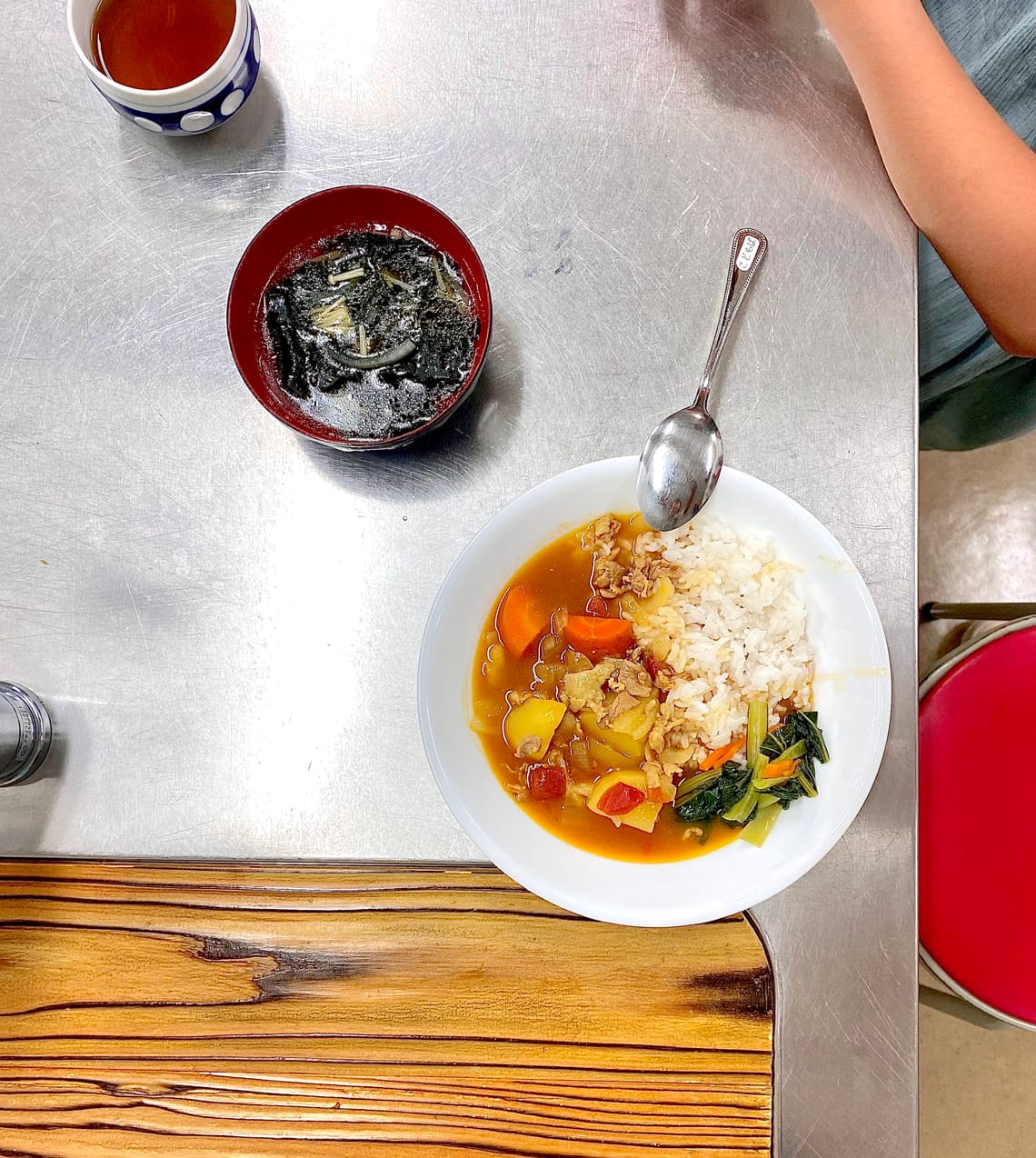
Kodomoba Children's Cafeteria
(日本語訳はこちら)
As a teenage girl, I don’t normally reflect on the importance of having a place where children can eat and play with other children to their hearts' content … and where parents can watch them while taking a breather.
Growing up, my mother and I had access to the occasional play place at a McDonald’s or a childcare center at a gym, but we never had access to a place where I could routinely play with other children whom I didn’t go to school with or wasn’t the same age as me, let alone, a place that provides cheap, nutritious, and warm meals for the both of us. Kodomoba’s children’s cafeteria was exactly that. After I visited Kodomoba’s children’s cafeteria, I truly felt a little saddened that I never experienced having such a valuable place like theirs when I was younger.
Kodomoba Children’s Cafeteria is a children’s cafeteria that is built on the lengthy experience and compassion of daycare workers who care about the upbringing of young children in their community.
Kodomoba Children's Cafeteria is run by an organization called Kodomoba, a nonprofit working to build a community support system for children and parents. They center their work around the Meguro ward, and have multiple programs, from their children's cafeteria to their parenting courses, to even various food-making classes for children and parents alike. Their main goals are to build a stronger community that is well-equipped for childcare, and most importantly, to build a safe place where children feel like they can go after school or during the weekends. They even provide educational support every Tuesday night to upperclassmen! While I will be mainly focusing on their children’s cafeteria, know that it truly doesn’t do them justice.
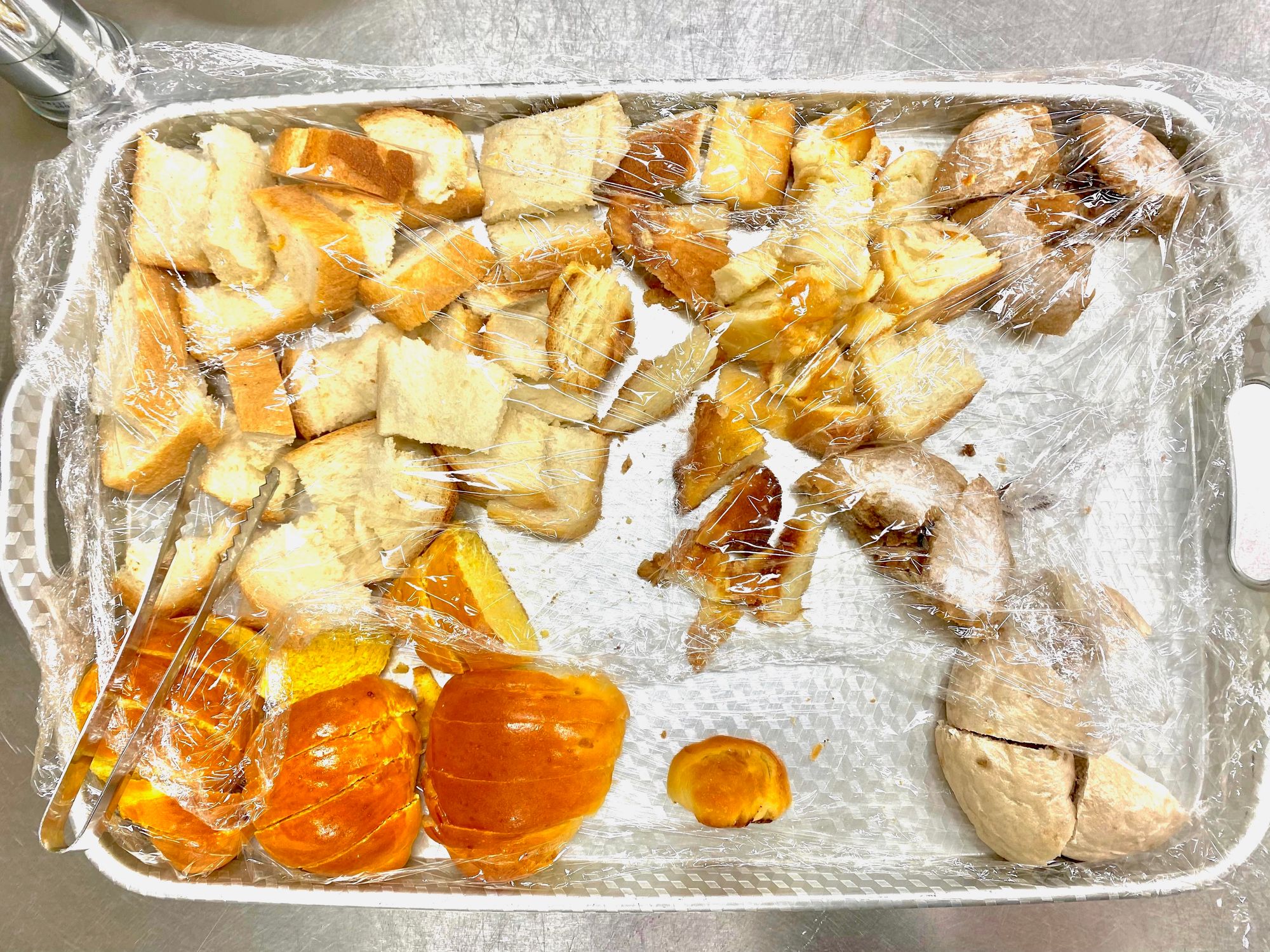
I had the opportunity to go to the children’s cafeteria held at the public education center on a Friday night from 5:30 PM to 7:40 PM. The night’s meal was pork curry, soup, and steamed vegetables, all stuffed with nutritious ingredients. My mouth watered at how delicious the curry looked with the mixture of warm colors, especially with the array of different varieties of bread on two sets of trays.
As I looked around, the whiteboard in the front of the room had listed where the ingredients came from. The rice was a culmination of different donations from the citizens of Meguro, the vegetables were from a food bank donation from a Consumers’ Cooperative business, and the bread was from a local bakery. Because many children in the community are on summer break when the free school lunches in the Elementary schools are not available, the organization has increased the number of times they host children’s cafeterias this month. They are even collaborating with local restaurants to offer kids’ meals which cost only 100 yen (around 70 cents USD) during this summer.
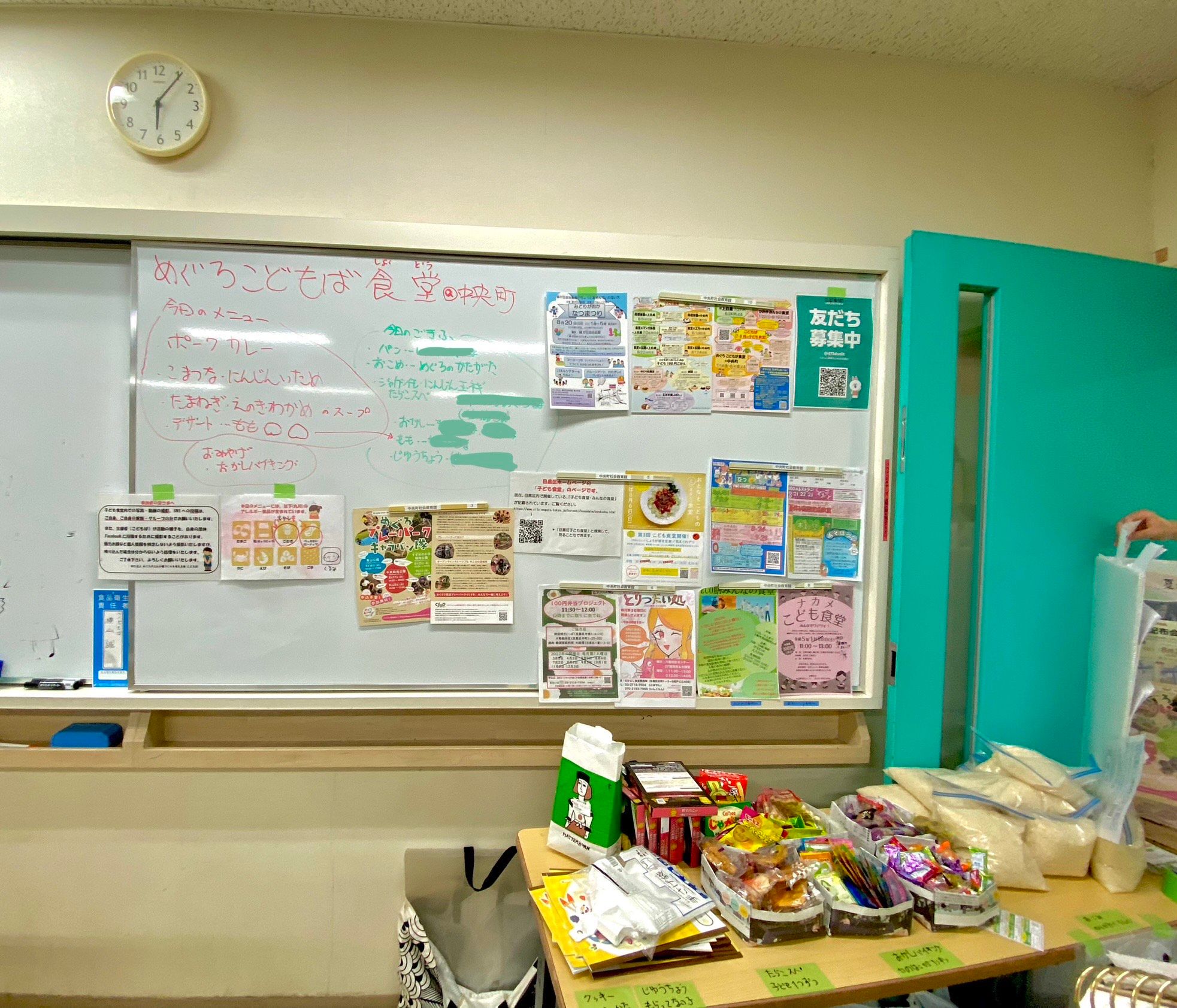
The group of volunteers had come in two hours earlier to help clean their kitchen space and make the scrumptious food. There were seven or so volunteers of all ages, from retired employees making sure that they still have ties with the community, to university students who want to expand their education in children’s welfare beyond the classroom. Even so, what stood out was the presence of daycare workers. The man behind the organization was Mr. Yokoyama, a daycare worker who found himself, at times, worried about what his kids in the daycare center were doing after going home. He was worried because he understood the lack of spaces children today could go to after school.
In previous generations in Japan, there were public associations called Children's Associations that created spaces where children could play and study with each other in their communities after school. The Children’s Associations’ presence in communities has been increasingly declining, along with spaces where children could interact with one another and feel like they have a place to go with trusted adults when things are troubling them. Mr. Yokoyama wanted to remedy this by starting the organization, Kodomoba. Kodomoba in Japanese is a shortened word for, “kodomo no ibasho,” which means a place for children. They originally started in 2015 as an organization that held after-school activities in rented-out public facilities, but then gradually started to implement meals in 2016, to create spaces for children with food.
You could immediately tell that Mr. Yokoyama deeply cared about the well-being of the children who came. While I was asking questions, he rightfully worried more about the children eating, the children who wanted to play, and the parents who came in. As a childcare worker, he was passionate about the happiness of children and the comfort of their parents. I could tell that most of the parents and children felt safe and at ease. The mothers looked relaxed after getting a break from dinner duties, and the children looked ecstatic to eat with their friends. Two of the girls I got to ask questions to were happy to tell me that they had “lots and lots,” of friends at the children’s cafeteria, no matter what age or school they went to. You could tell that the children truly trusted Mr. Yokoyama as well. A boy had even run up to him and crash-hugged him from behind when the boy arrived at the cafeteria.
Mr. Yokoyama stated that a children’s cafeteria, to him, was an extension of his responsibilities as a childcare worker. Watching the parents feel at ease with their child, eating a home-cooked meal that was prepared by someone other than themselves, made me realize how important it is to have places like the children’s cafeteria that Kodomoba had created. Mr. Yokoyama, along with some other volunteers, are childcare experts. Parenthood is already hard as is, and having a group of passionate community members with proper knowledge of childcare and parenting who are willing to help, must be such a reassuring feeling for the parents in the community.
The COVID-19 pandemic was catastrophic for many children’s cafeterias, which resulted in the discontinuation of many. However, the ability to have this much stability in its location, donations, and programs, is no doubt, the culmination of the eight years of experience and relentless support from the Meguro community. I hope there are more smiles and good days to come for them.
If you would like to go to the cafeteria, please look at the calendar on Kodomoba’s website, and contact Mr. Yokoyama below.
Gmail: megurokodomoba@gmail.com
Facebook: https://www.facebook.com/megurokodomoba/
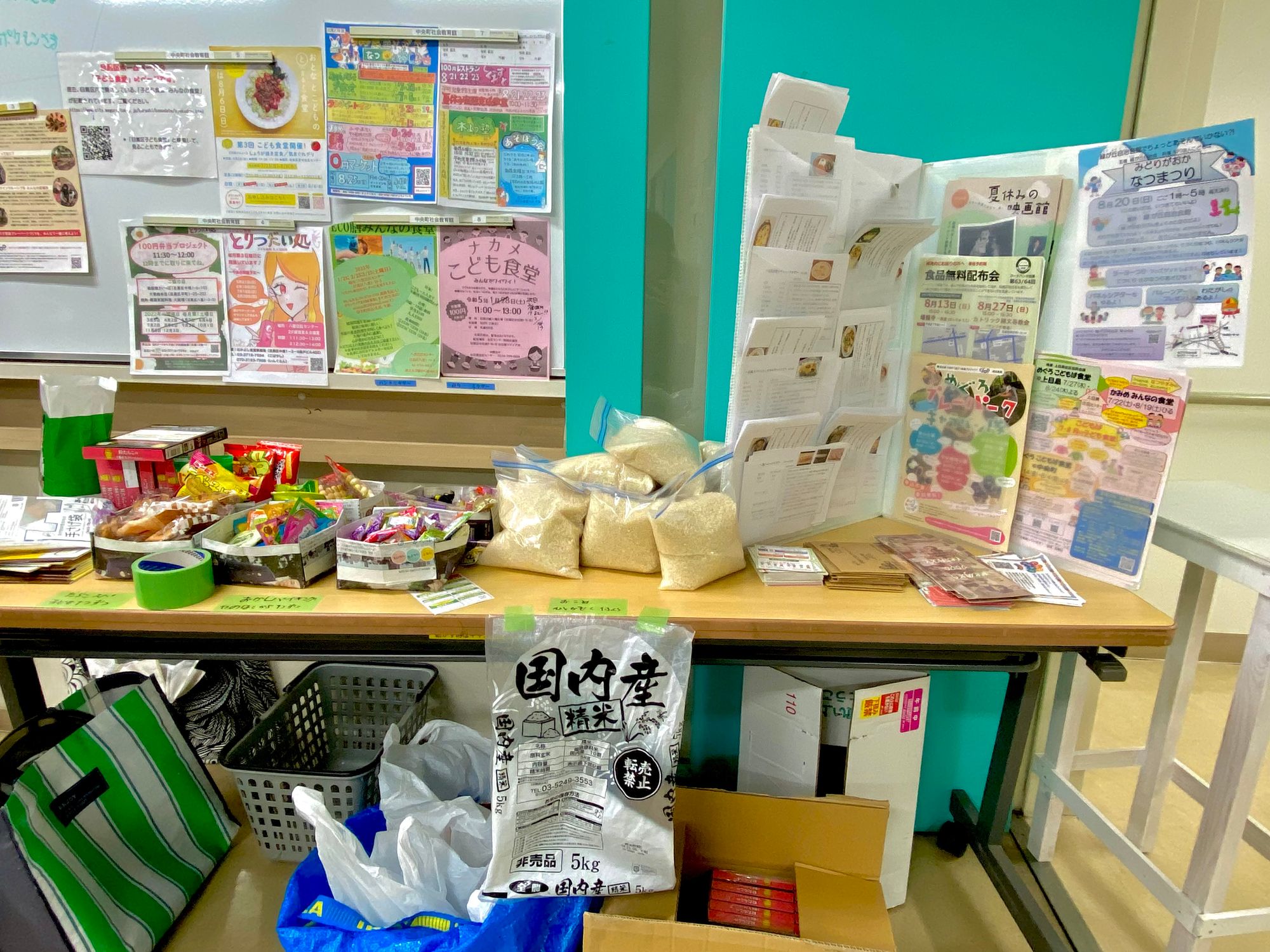
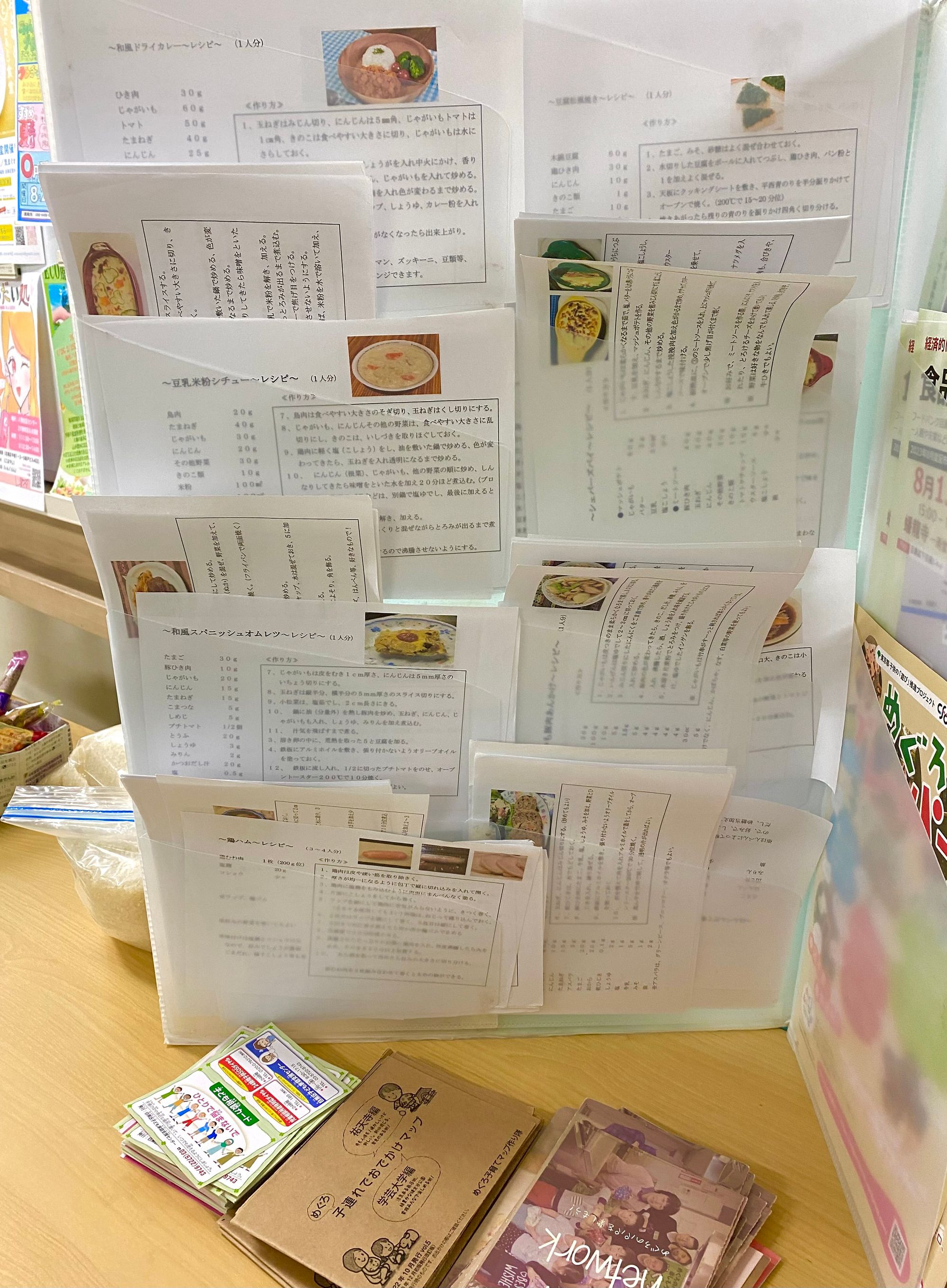
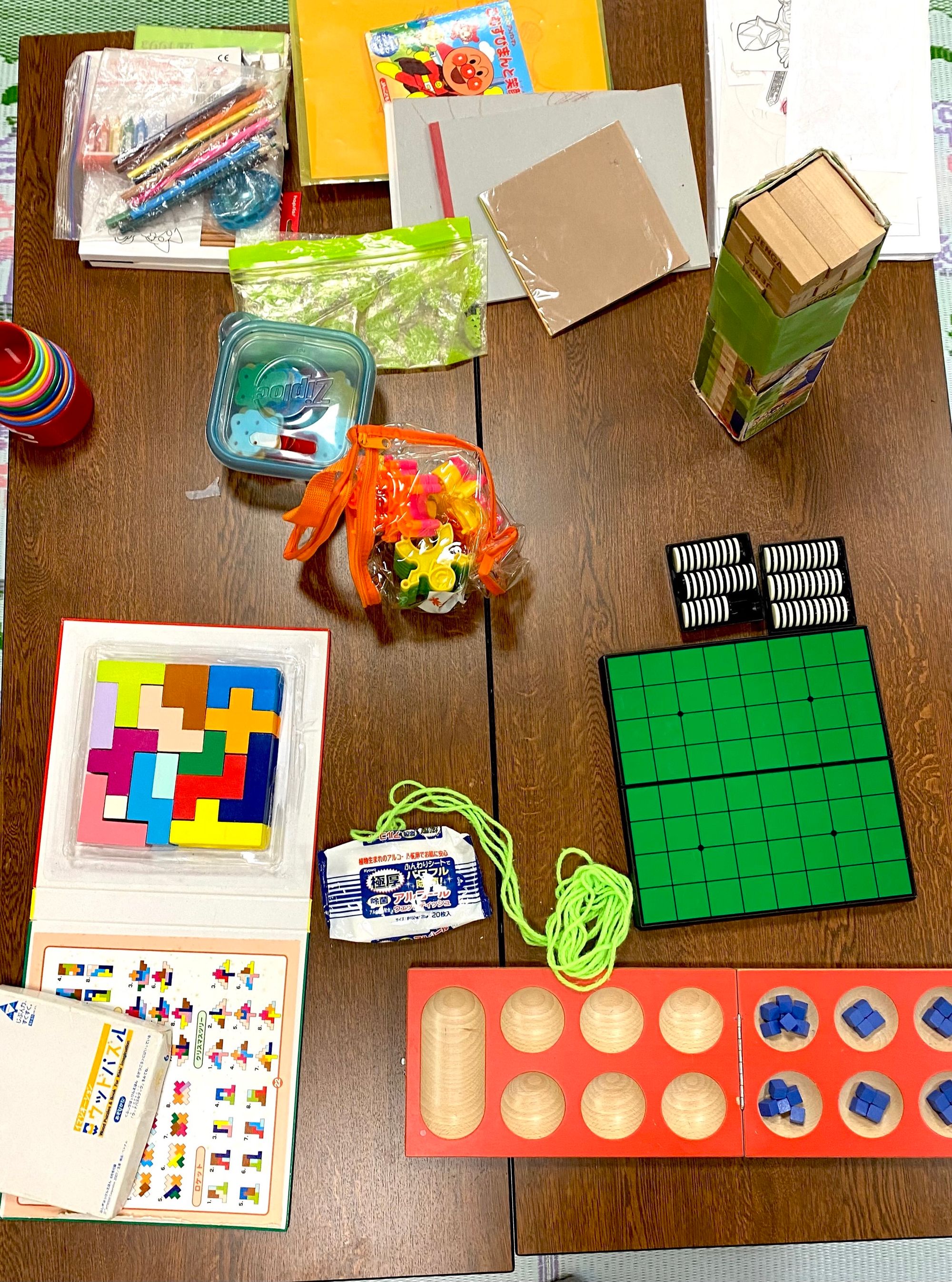
Instagram: @koshoku.blog
Facebook: @KoShoku Diaries
